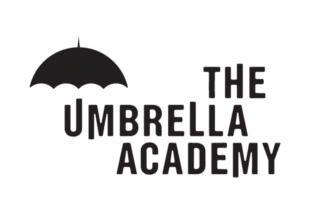Women’s rights have been fast taken away in the years the Taliban reclaimed rule over Afghanistan. From prohibitions on education to extreme limitations on daily living, Afghan women today live under a government that suppresses their liberties. One woman, Malala Yousafzai, who has had a terrible experience with the Taliban, is speaking out to help these women, though.
- How Has the Taliban Reversed Women’s Rights?
- Why Is Education So Critical for Women’s Rights?
- What Is Bread & Roses and How Does It Highlight Resistance?
- How Are Afghan Women Showing Incredible Courage in Their Fight for Freedom?
- How Can We Show Solidarity with Afghan Women?
- What Can the World Learn from the Bravery of Afghan Women?
Why did Russia agree to the Taliban government?
Malala, who was riding a school bus in Pakistan when shot by a Taliban sniper, knows well the atrocities of living under the group’s repressive control. Now 27 years old, the Nobel Peace Prize winner is advocating for the women of Afghanistan, whose lives have been upended since the Taliban took over the nation in 2021.
“I never imagined that the rights of women would be compromised so readily,” Malala states. ” Many females find themselves in a somewhat gloomy and hopeless state from which they cannot see any escape. To them, the future seems utterly gloomy.
How Has the Taliban Reversed Women’s Rights?
The Taliban’s quick comeback to rule has resulted in a total reversal of the rights Afghan women battled for during the past two decades. As the US-backed government fell, the Taliban instituted “moral rules” limiting women’s freedom of expression. Women under these rules have to wear full-body covers, are not allowed to travel without a male chaperone, and cannot make eye contact with men unrelated by marriage or blood.
Emphasizing the ridiculousness of the rules, Malala notes, “the restrictions are just so extreme that it does not even make sense to anyone.”
The Taliban’s policies have been denounced by the United Nations, which regards them as a type of “gender apartheid”—a system whereby individuals suffer systematic social and economic discrimination depending on their sex. Human rights organizations such as Amnesty International have urged recognition of these abuses as crimes under international law. Still, the Taliban has defended these policies, contending they honor Islamic ideals and Afghan customs.
Malala says, “Women lost everything.” “They [the Taliban] know that education is the cornerstone and that you have to start with that if you are to deny women their rights.”
Why Is Education So Critical for Women’s Rights?
First attacking education, the Taliban’s attempts to eradicate women’s rights started More than a million girls have been denied education since their takeover; around eighty percent of female students no longer show up. The matter has only gotten worse when over 100,000 female university students were denied permission to keep on their studies in 2022.
This lack of education produces quite obvious effects. The UN notes rising rates of underage marriage as well as a notable rise in mother death rates brought on by family planning and reproductive health ignorance.
“Afghan women live in quite dark times now,” Malala notes. “But they demonstrate resistance.” Malala says that despite the extreme persecution, Afghan women are not docile victims; they are fighting back and discovering means of resistance even in the most difficult conditions.
What Is Bread & Roses and How Does It Highlight Resistance?
Malala has been executive producer for the forthcoming documentary Bread & Roses in an attempt to increase knowledge of the suffering of Afghan women. Under Taliban control, three women— Zahra, a dentist compelled to give up her profession; Taranom, an activist who escaped to the border; and Sharifa, a government employee who lost her work and her freedom—have their tales told in the movie, directed by Afghan filmmaker Sahra Mani.
Though Bread & Roses centers on the personal stories of these three women, Malala notes that it also reflects the hardships endured by the twenty million women and girls living in Afghanistan. “It’s about the 20 million Afghan girls and women whose stories might not find our screens,” she says.
The goal of the documentary, according to Afghan director Sahra Mani, who left her nation following the fall of the US-backed government, is to highlight the slow deterioration of women’s rights under the Taliban. “How slowly, all the liberties have been taken away,” she says. Sahra gathered films from women still living in Afghanistan, revealing their stories and battle for their rights.
Though still under development, the documentary highlights the women’s hardships, including video of demonstrations where women, risking their lives, were arrested by the Taliban for advocating their rights.
How Are Afghan Women Showing Incredible Courage in Their Fight for Freedom?
Sahra points out that the situation in Afghanistan has gotten so bad that making such a documentary right now would not be viable. “Women could still go out and demonstrate at that period,” she notes. “Women are not even let to sing nowadays; the situation is getting more challenging.”
The video gathered for the movie emphasizes the amazing bravery of Afghan women who marched on the streets to demand their rights despite the repressive government. “We were honored that these women trusted us to tell their stories,” Sahra explains. “But it was not for the documentary when they were out in the street requesting their rights. It was for them, for their own life, for their freedom.”
Malala notes that these women’s struggle for freedom and dignity is far from finished and appreciates their great bravery. “Defiance is extremely challenging,” she says, but Afghan women persist in spite of all the challenges to prove that their struggle for a better future is active.
How Can We Show Solidarity with Afghan Women?
Bread & Roses should motivate more worldwide support for Afghan women and encourage the Taliban to uphold their rights, Malala hopes. “When I saw the reality of the Taliban take over, I was utterly stunned,” she remarks. “We have to ask what kind of systems we have set in place to guarantee protection for women in Afghanistan, but also elsewhere.”
The title of the movie, Bread & Roses, originates from an Afghan proverb meant to show the link between acquiring sovereignty and a living. “Bread is a symbol of freedom, earning a salary and supporting the family,” Sahra notes. “In my language, we have a saying: the one ordering you is the one who gave you bread. Finding your bread indicates that you are in charge of yourself.
Malala also finds this to be an optimistic indicator of the future. “Women in Afghanistan, they keep changing the tactic,” Sahra notes, seeing how constantly innovative means to rebel are discovered by Afghan women. “They keep seeking a fresh approach to keep fighting.”
What Can the World Learn from the Bravery of Afghan Women?
Malala exhorts solidarity and action as the documentary travels to viewers abroad. Malala advises “if they are not scared, if they are not losing that courage to stand up to the Taliban, we should learn from them and we should stand in solidarity with them”.
Although the tales in Bread & Roses might center on the suffering and loss experienced by Afghan women, they also show their bravery and fortitude against unspeakable injustice. Malala believes that by means of this documentary, the world will learn from their fortitude and join the struggle for their rights.
“We have our time to be their sisters and supporters,” Malala says. “They are exposing a lot of risk. We have to stand alongside them.








